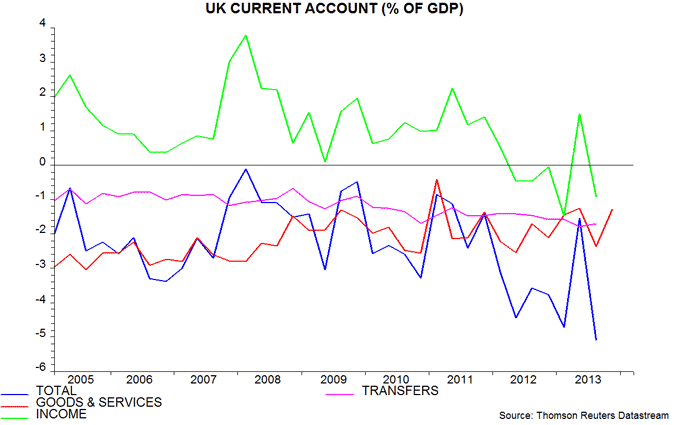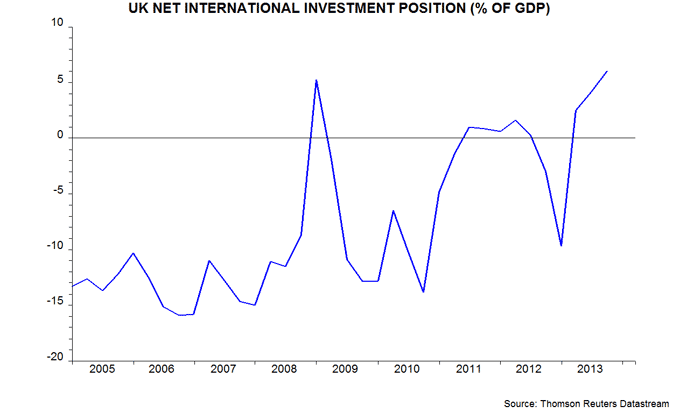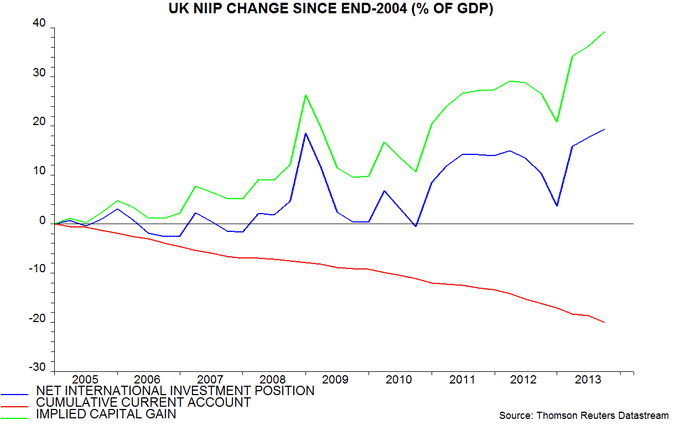UK external finances sound despite current account deficit
Proponents of the view that economic strength is unsustainable often cite a widening current account deficit as evidence that Britain is “living beyond its means”. This neglects a large capital gain on overseas investments in recent years; this gain has more than offset the deficit, resulting in a significant improvement in the net investment position.
The current account deficit rose from 1.5% of GDP in 2011 to 3.8% in the first three quarters of 2013*. The current account is the sum of balances on trade in goods and services, income and transfers. The trade deficit was 1.6% of GDP in 2013, exactly in line with its long-run average**, and has been stable in recent years. The transfers deficit is also little changed since 2011. The rise in the current account shortfall reflects a shift in the income balance from substantial surplus to deficit – see first chart.
Current account deficits have a negative impact on a country’s net international investment position (NIIP), since they must be financed either by borrowing from overseas or selling foreign assets. The UK’s NIIP, however, has improved from -13% of GDP (i.e. assets less than liabilities) at end-2004 to 6% by the third quarter of 2013 – second chart. This reflects changes in capital values of existing assets / liabilities.
The 19 percentage point rise in the NIIP / GDP ratio since end-2004 compares with a cumulative current account shortfall of 20% of GDP over this period. The implied capital gain on the stock of net assets, therefore, is a whopping 39% of GDP – third chart.
Put differently, the current account position adjusted for changes in capital values has been in substantial surplus in recent years, including 2013.
A stable, modest trade deficit and rising overseas wealth support the view here that strong economic growth will be sustained. The wider current account deficit reflects a shift, probably temporary, in the form in which a return is delivered on overseas wealth from income to capital gain – only the former is counted in the current account but both should be included in an assessment of the external finances.
*Fourth quarter due on Friday 28 March. The deficit was 5.1% of GDP in the third quarter alone but this followed a low outcome – 1.5% – in the second quarter.
**Fourth quarter already available. Official data extend back to 1992.




Reader Comments